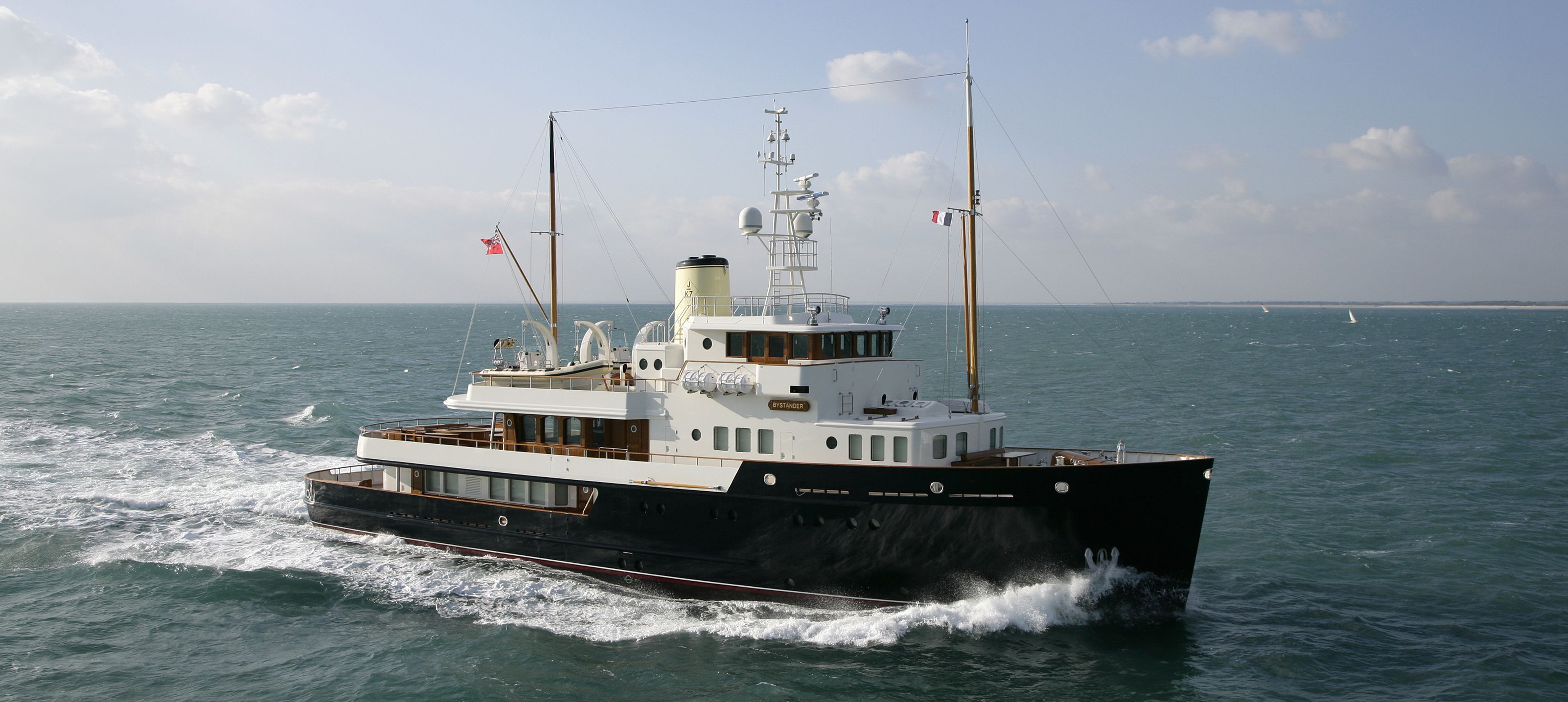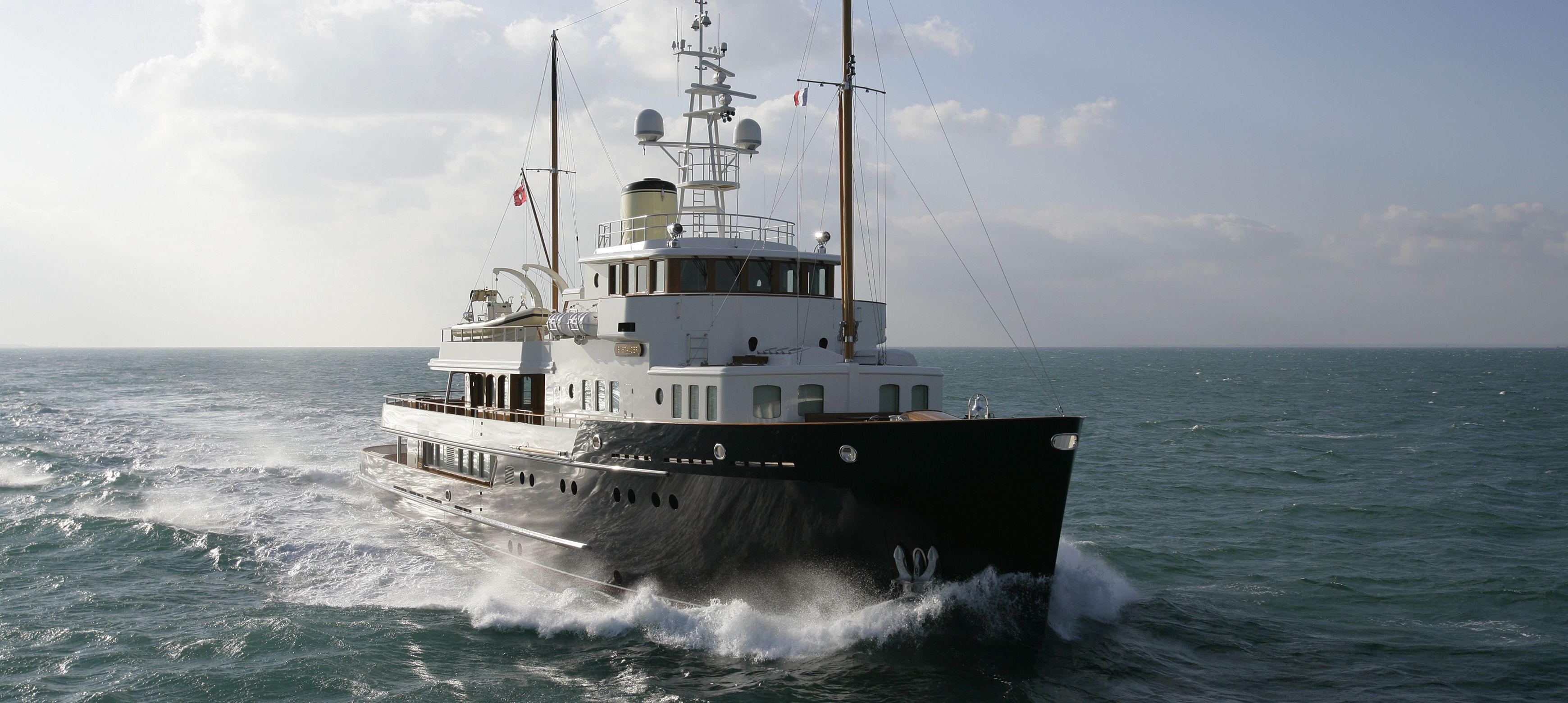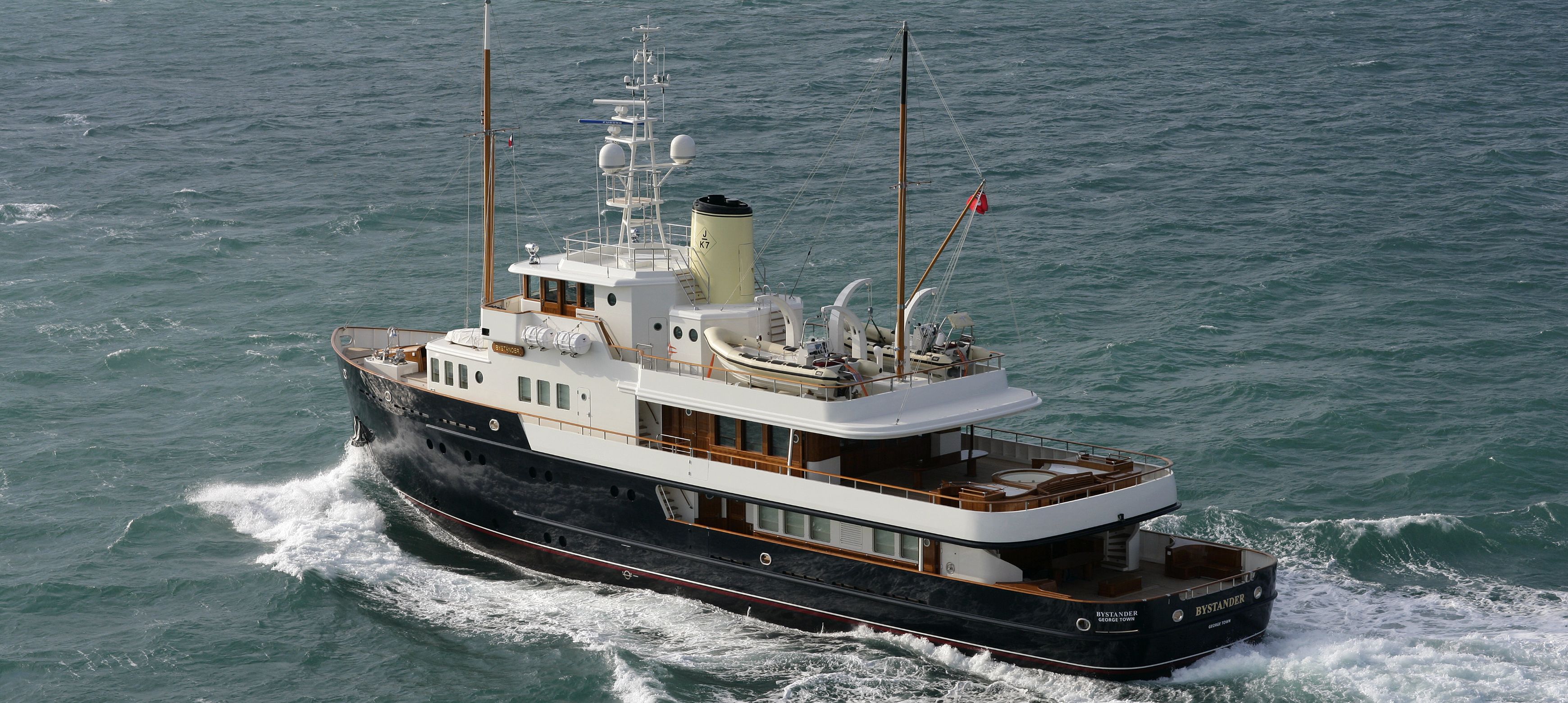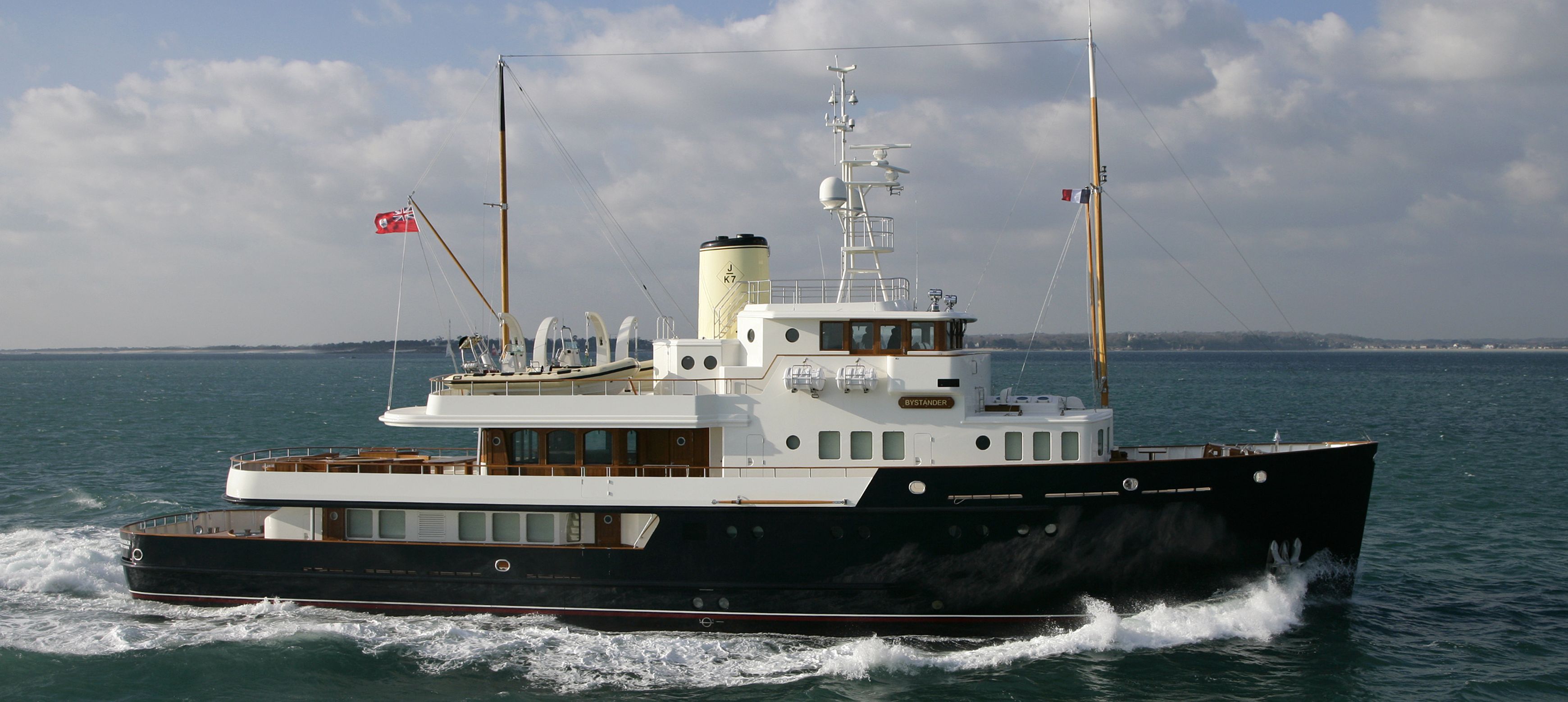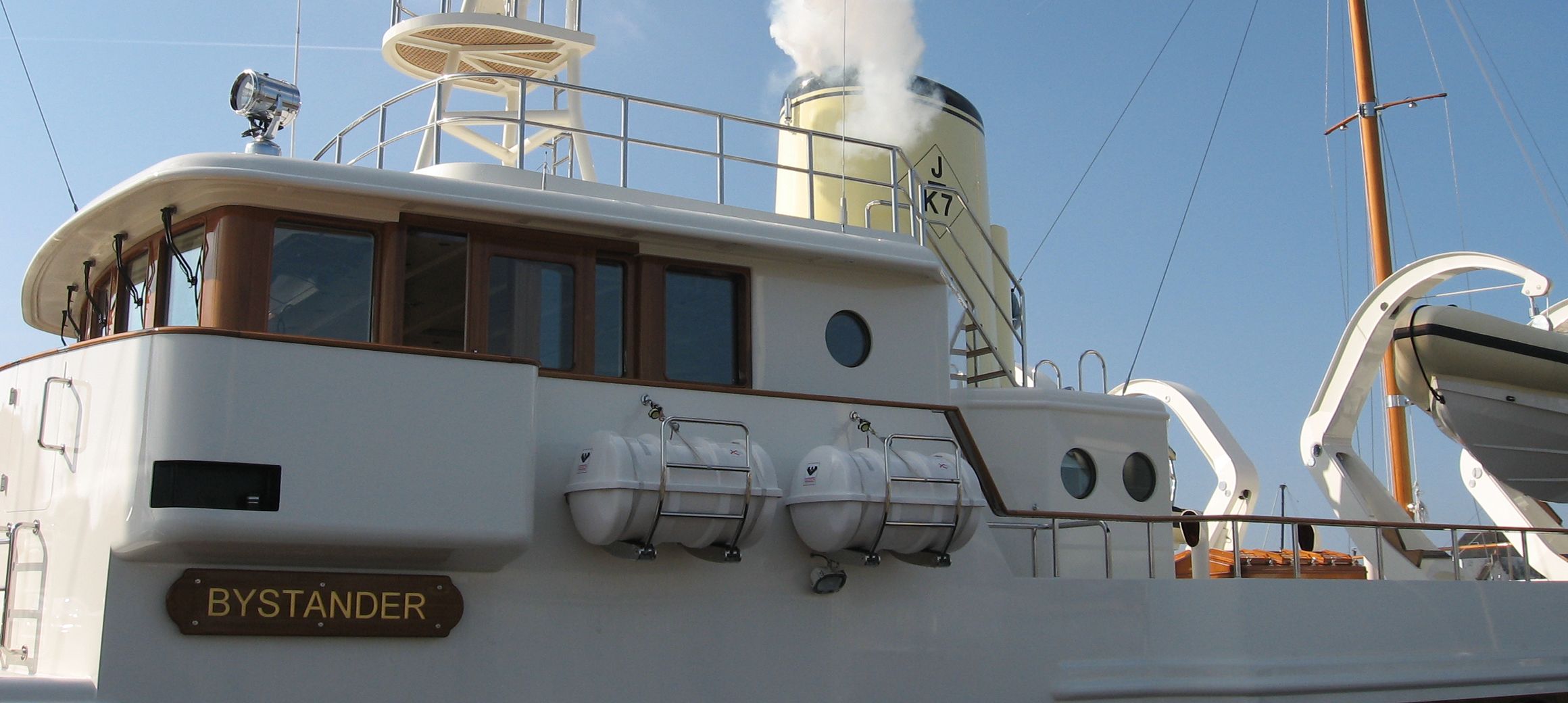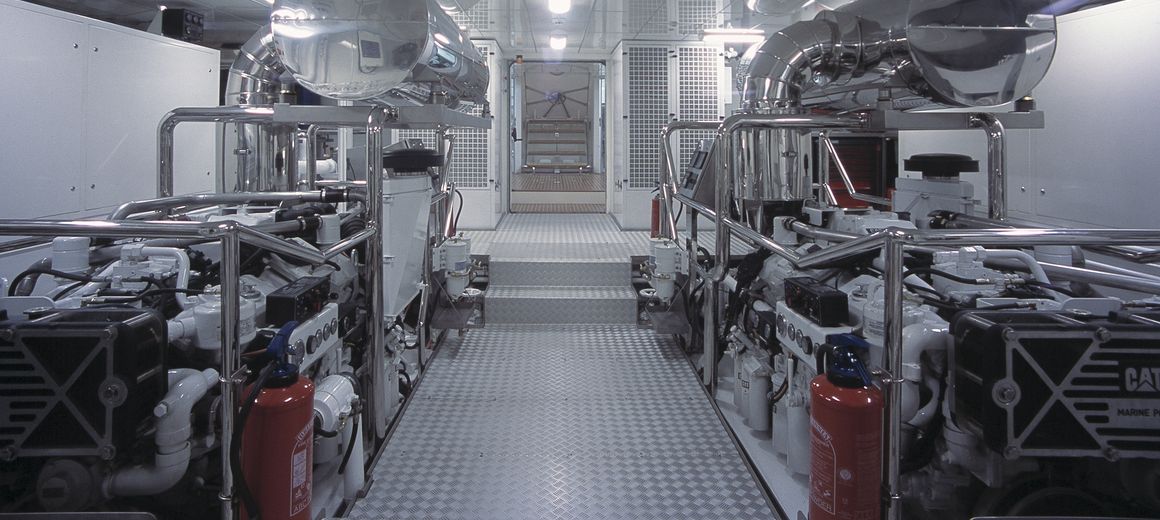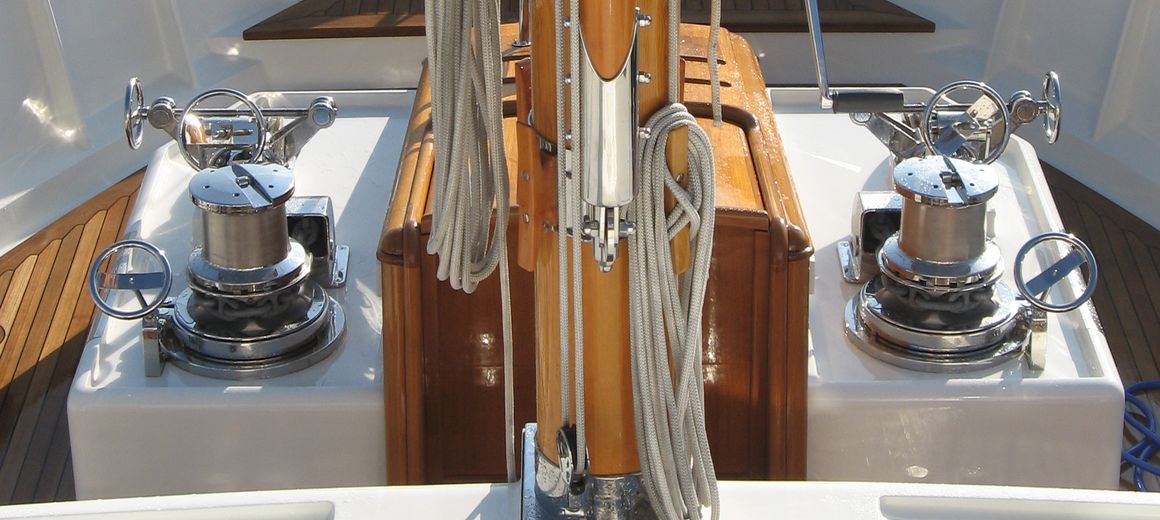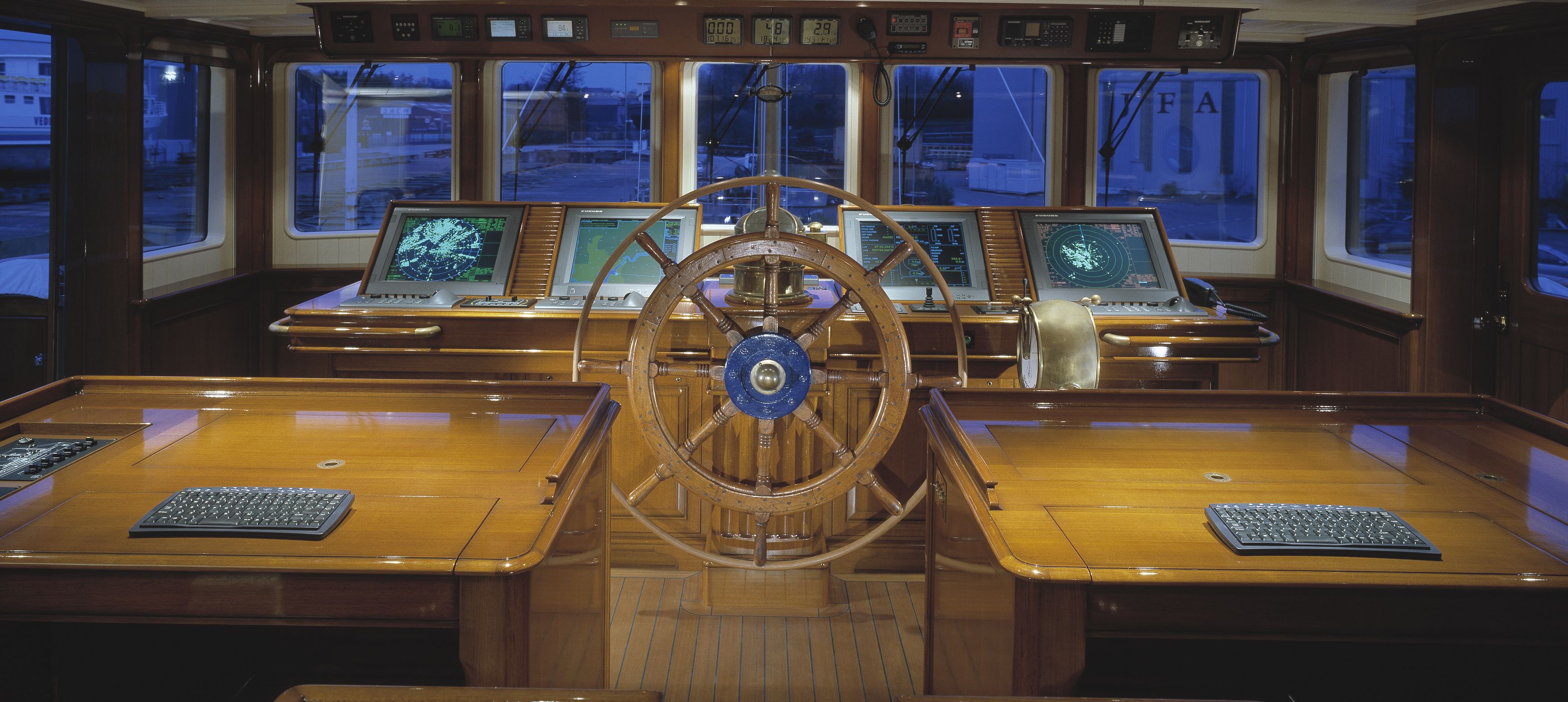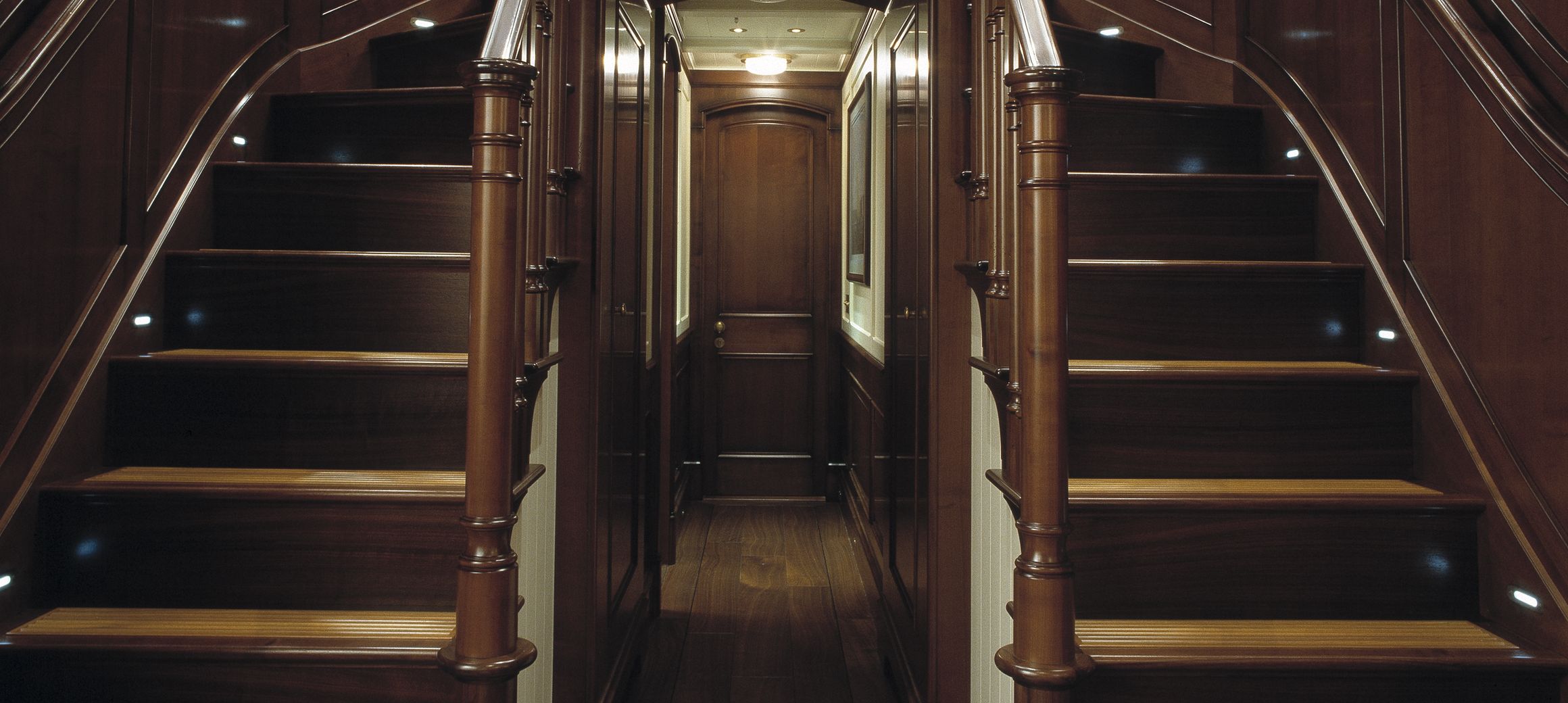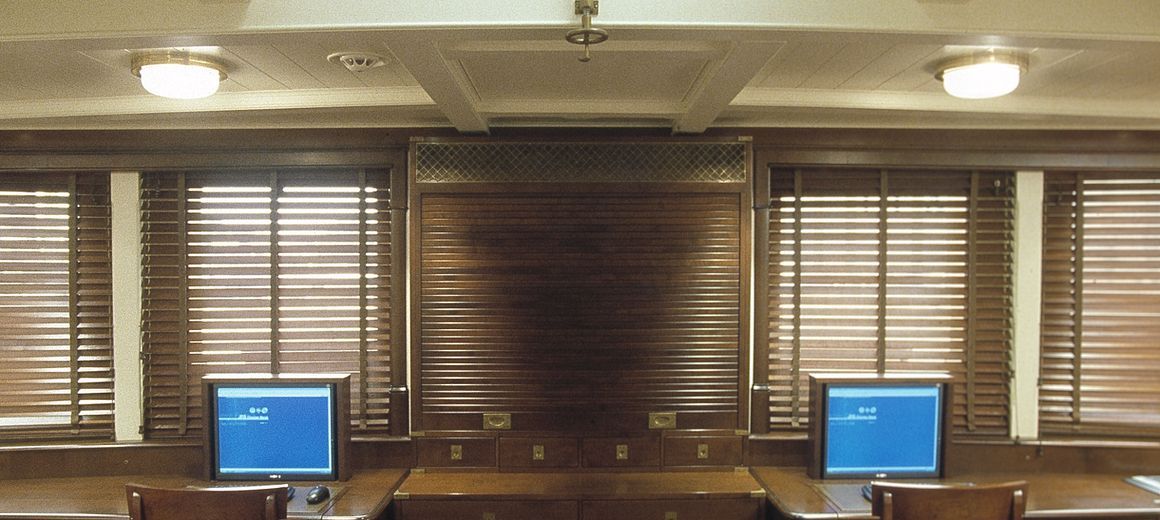Bystander – Escort Vessel 138′
Bystander, le navire « escorte » du classe J Velsheda
Destiné à être le navire « escorte » du classe J Velsheda, Bystander est le fruit d’une collaboration étroite entre le cabinet d’architecture navale Vripack et le cabinet anglais Rhoades Young Design pour le design intérieur et extérieur. Rhoades Young Design a imaginé des ambiances classiques inspirées des navires de travail des années 30. La coque d’une longueur hors-tout de 42 m est en acier tandis que les superstructures sont en aluminium. Bystander possède un système de propulsion à deux hélices, deux moteurs diesel et une autonomie supérieure à 5 400 miles nautiques. Une attention particulière a été apportée aux nombreux détails qu’ils soient en extérieur ou en intérieur afin de donner à Bystander un style classique. Bystander a remporté l’Award du meilleur bateau à moteur de 32 à 43m en 2006 décerné par l’International Superyacht Society aux Etats Unis.
Caractéristiques
| Nom du bateau | Bystander |
| Numéro de coque | 19C |
| Année de livraison | 2007 |
| Type | Escort Vessel |
| Architect naval | Vripack Naval Architecs |
| Architect intérieur | Rhoades Young Design |
| Matériau | Coque acier et superstructures en aluminium |
| Longueur hors tout | 42,18 m |
| Longueur flottaison | 40,56 m |
| Largeur | 9,15 m |
| Tirant d’eau | 2,6 m mi-charge |
| Tirant d’air | 19,7 m |
| Déplacement | 520 tonnes mi-charge |
| Capacité invités | 12 pers |
| Capacité équipage | 11 pers |
| Moteur(s) | 2 x 720 cv Caterpillar |
| Groupe eléctrogène | 2 x 155 kW + 1 x 90 kW Northern light |
| Vitesse max – vitesse croisière | 13 nds – 11,5 nds |
| Autonomie | 5000 nm à 11 nds |
Plans
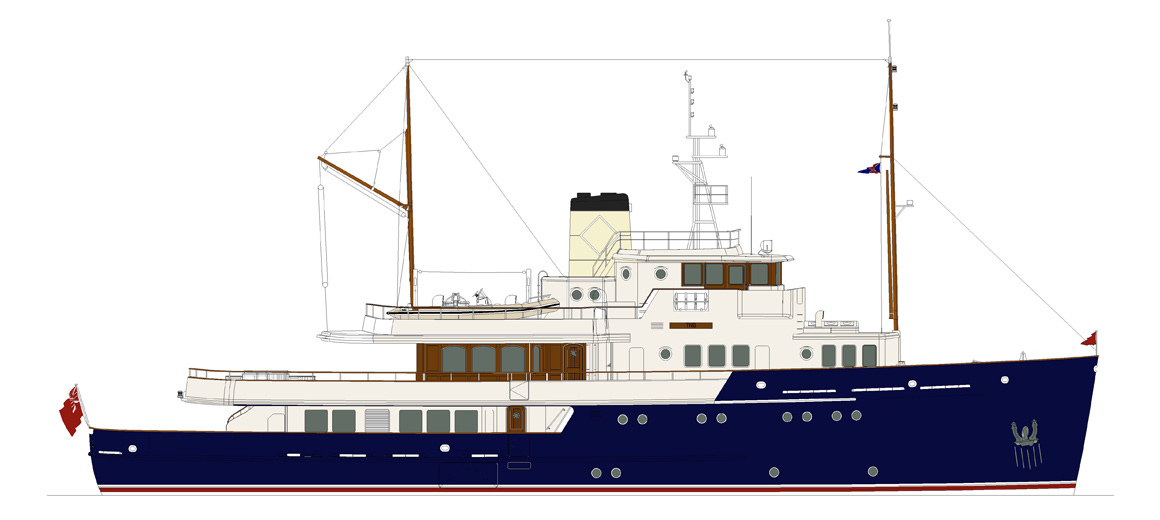
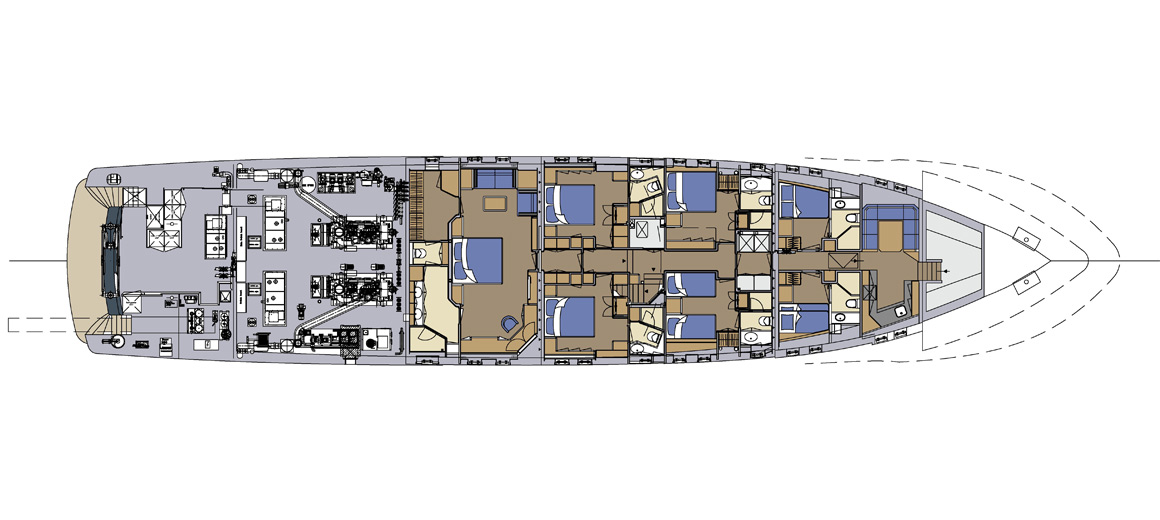
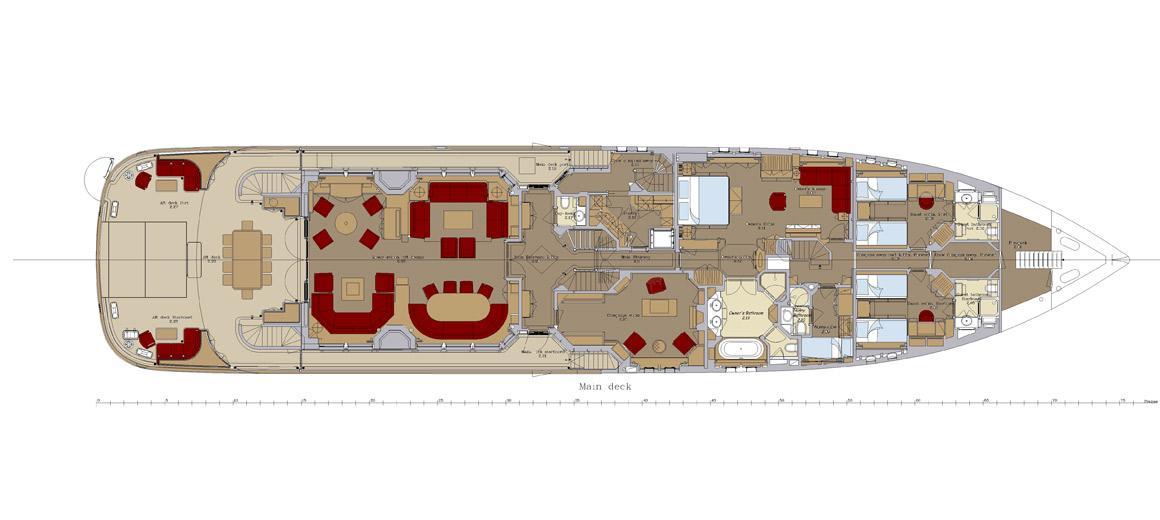
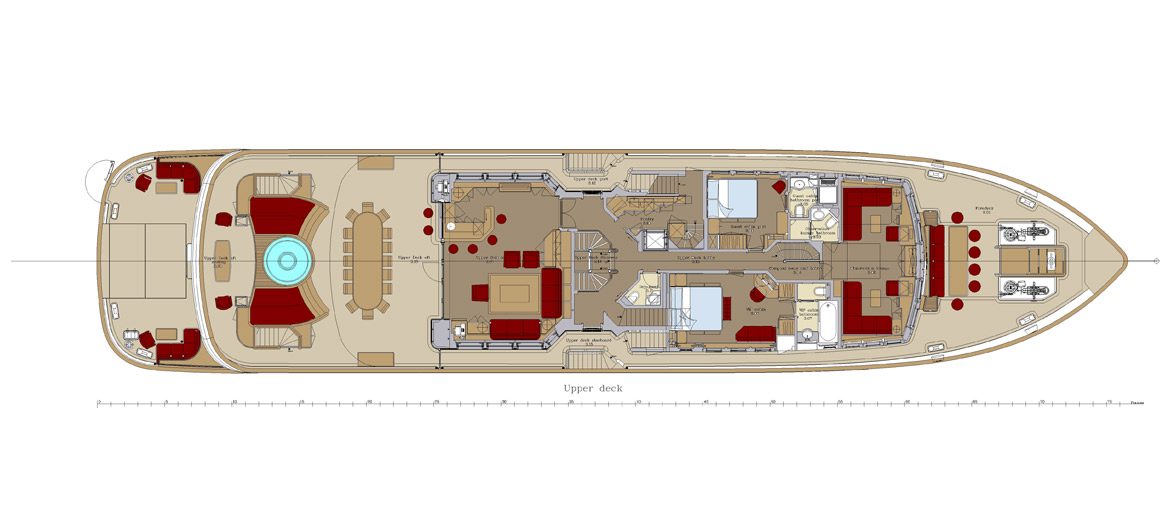
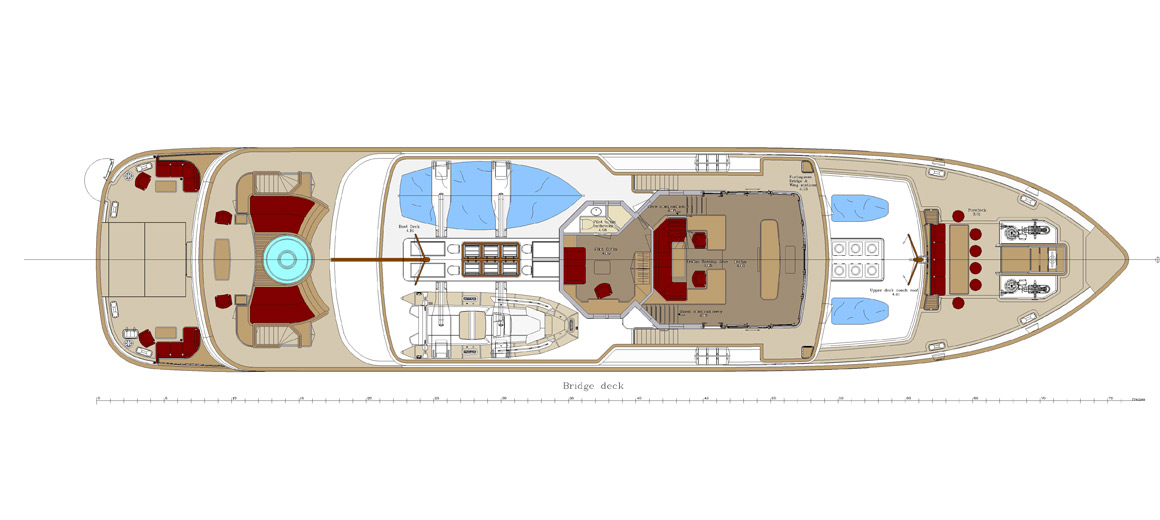
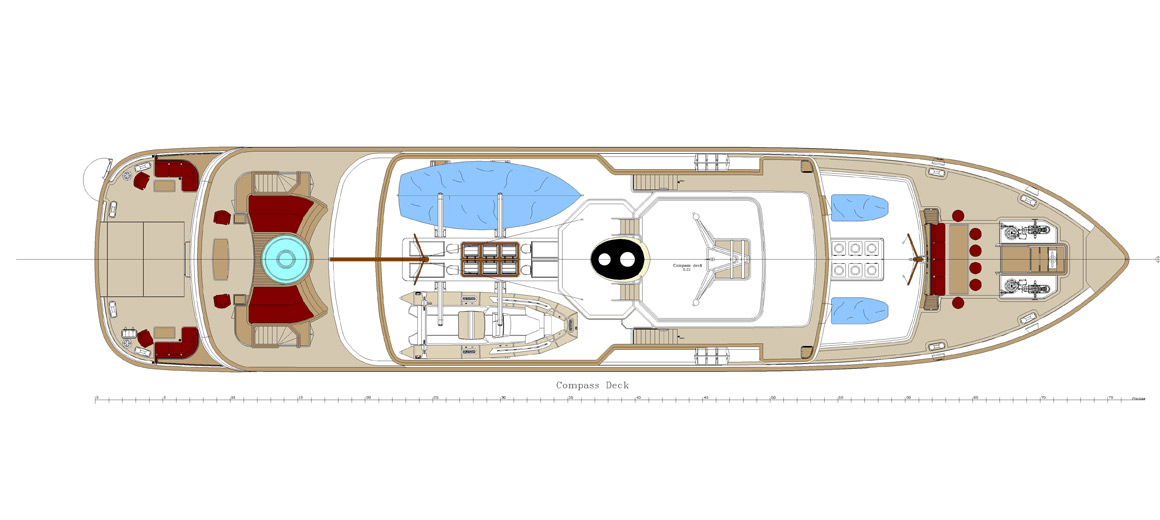
Rhoades Young Design
Architecte Intérieur et Extérieur
Rhoades Young Design had work on this 42m Escort vessel in conjunction with Vripack Naval Architects and the JFA shipyard in Concarneau – France.
Her profile forward, suggests a rugged workboat with a high bow and steep stem, the concentration of the superstructure weight is forward to leave large working decks aft. The forward section of the boat is very much the rugged end, with painted superstructure and high bulwarks, further aft more yacht style detailing becomes apparent with timber framed windows and panelled bulkheads in the social areas.
The interior is based on a nineteen thirties work boat, refitted for private use.
Furniture detailing reflects the nature of the boat; it is simple, functional and generally understated. In certain areas the detail level is upgraded to lend gravity to areas of importance, whilst pieces of free-standing furniture create a less formalised appearance. Broad plank wooden floors and elements of the Ooriginal boat form a background of panelled bulkheads and beamed overheads.
The layout provides relaxed, though civilised accommodation with versatility and flexibility when required. A large deck saloon, which can be opened to the aft deck creating one vast sociable area is a rare and impressive space designed with spectating and entertaining in ind. The service areas are kept separate from the guest areas to allow both parties to function without impedance.
